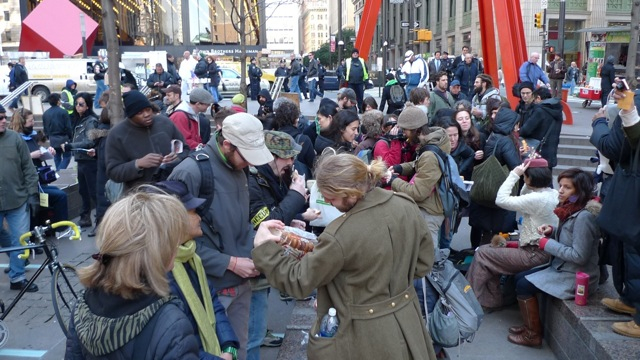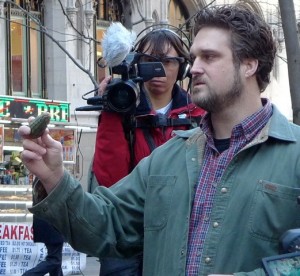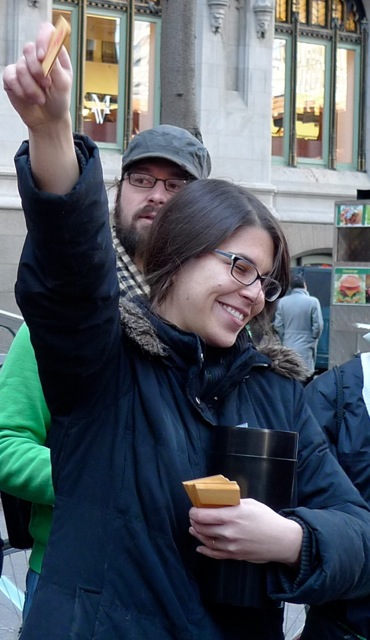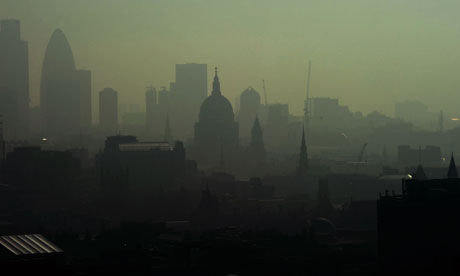Like many New Yorkers, I’m in the middle of my summer exodus, a retreat to leafier and quiet parts of the state that many people still seem to manage for a while. It’s an unconscious homage to the former Jewish exodus to the Catskills, a legacy so apparently unappealing that the Catskills are trying to rebrand as the South Adirondacks. One of the things I do is see more broadcast media than usual. It’s not pretty. But you do get to see truAmerica, the country that brought you truTV.
In Woody Allen’s 1986 classic Hannah and Her Sisters, Max von Sydow plays Frederick a misanthropic artist. He too spends an evening watching television and describes it to Lee (Barbara Hershey): “Can you imagine the level of the mind that watches wrestling?” While funny, any good cultural studies undergrad can take this apart: wrestling is known to be “fixed,” so the pleasure for the viewer comes in a knowing engagement with the parodic violence that is not violent and so on, and so on, as Zizek would say.
There’s another form of inauthentic television now, which is what I call truAmerica. Let’s try and imagine the kind of mind that would watch golf. Yesterday at a spacious Long Island gym, I was confronted by a large flat-screen showing the British Open golf. It’s amazingly well-executed TV, with cameras tracking the tiny white balls through the air and an editor cutting live from one scene to the next so you’re always watching action. In between come repeated ads, clearly targeting middle-aged white men. There’s hair color, pills for erections and cars of course. Notably, there were also a lot of financial ads.
This one from Merrill Lynch, which you can watch in entirety on their YouTube channel, seems designed to provoke a snort of ironic scorn. Of course, it’s called “Belief,” knowing that the very last thing that anyone with actual knowledge of financial markets would have in Merrill Lynch is belief. It’s like a restaurant that indicates on its signs that it serves “Authentic Cuisine,” telling anyone with any sense that the food is utterly inauthentic and homogenized for truAmerican taste. Indeed, Merrill Lynch are forced to note at the end in a subtitle that they are now part of “Bank of America Corporation.” Perhaps the point of the ad is just to remind people that, despite all their corporate crime, Merrill Lynch did not go under.
Next up was an ad for AIG. Yes, that AIG. It was trying to sell the idea that an AIG policy was a good way to provide security for “your” family, using a graphic of a white roof over four little figures representing the traditional heteronormative family with one boy child and one girl. Again, no-one aware of the events of the past five years would think that AIG would be a good place to get life insurance. This advertising targets people who think that they are, or hope to be, in the one percent but are not even close. The sales manager who thinks he’s getting ahead (no ads I saw were directed at women) and wants to make investments to show it but doesn’t know how. It’s malicious and deceptive advertising.
If this form tries to define the upper levels of what used to be called the middle-class, there’s far more to define the exclusion at the lower levels. Later, while scanning channels I found one called truTV. On the basis of the “authenticity” paradigm, we can say that nothing on truTV is true, as conventionally understood. Perhaps truTV is a mediated version of Colbert’s “truthiness,” showing the world the “America” that the politicians claim to believe in and speak for. The place where gun massacres are not the time for discussion of gun control is truAmerica.
I discovered here an episode of the hit reality show Hardcore Pawn, which I refer to in my debt talks but have never seen. Apparently, it just started a new series. It’s set in a big box pawn store called American Jewelry and Loan in Detroit. There are three plot scenarios used. First, staff fight among themselves or against the customers. Second, a customer tries to pawn something that is worthless. Third, someone brings in something interesting or valuable that the store wants to get. That’s about it.
The viewer is encouraged to identify with the store staff and to despise the clients, whether African American or (from the show’s truPoint-of-View) poor white “trash.” A typical segment shows a gay man trying to pawn a TV for $400 so he can move out from his violent partner’s apartment back to his mother. The store will only offer him $50. The character then acts out a parody of African American queer camp. Or a heavy-set white guy tries to pawn a much-worn computer with missing keys for $1000 and uses a tirade of obscenities at the long-suffering staff. “We” are supposed to laugh at “them” because were are in truAmerica, while they are not. The acting is transparent, the performances are wooden and the laziness ubiquituous: as is typical of the format, any quote with “bite” is seen over and over again.
Hardcore Pawn is a “breakout hit” for truTV, with 2.5 million viewers, close to the best numbers for Mad Men and many times higher than shows like Treme. The pleasure of measuring yourself against the desperate and seeing your higher status is clearly on the rise.
If this is the context, a self deceptive and highly mediated “middle class” that nonetheless knows that truAmerica is not real, why are we surprised when a sad, lonely man identifies himself as a superhero and acts out the Dark Knight message of one man against the world, dressed in a fantasy costume of black armor and a gas mask? Does he even understand that he’s not in truAmerica when he does this? Increasingly I think that the social movements’ mantra shouldn’t be “Another World Is Possible” so much as “You Need to Come and Live in this World, Not the One in Your Head.”
In short, the fantasy is not that there is an alternative. The fantasy is the world in which financial markets operate for the customer’s benefit, there’s a bold line between the middle class and the underclass, and it’s perfectly sensible to allow people to buy as many guns and ammunition as they want.








